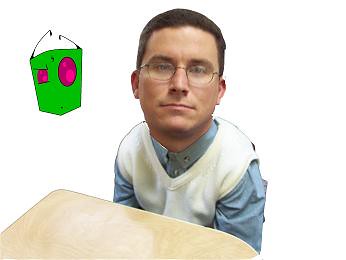Beliebte Klavierwerke
I've always had some interest in classical music (I used to sit in front of the stereo in my room for hours, listening to the same records over and over, usually one called 'A Festival of Marches'), but recently, I've begun to explore in depth certain composers, particularly Chopin. This came as a result of 3 things:
1. The record player that used to be in my bedroom in Indiana is now in my dad's office at the church, and since I have lots of time there, I've been listening to lots of music, even some records that I'd never heard before, since we discovered some more we had and added them to the collection. Among these are some Chopin and Rachmaninoff records.
2. The last two times I went to the library, I decided to look through the classical CD's for Chopin, Debussy, Rachmaninoff, and Van Cliburn (a famous concert pianist who has played basically everything) CD's. The music is amazing, what with Rachmaninoff's power, Chopin's musical genius, Debussy's beautiful pieces, as well as Van Cliburn playing them all -and more- perfectly (although sometimes he didn't seem to play with a whole lot of emotion or feeling- just perform them with exactly the right timing, etc.).
3. Our church recently purchased a slightly used but simply amazing Clavinova. Having more than all the bells and whistles, it is a lot of fun to play on (or, should I say, with). Some of the pieces I heard from the library and on records are on it, and you can not only speed up, slow down, etc., a song as you're listening to it, but as it plays, red and green lights come on over the notes being played; you can even push a button that will stop the song and wait for you to play all of the notes beneath the lights that are on, and it will go to the next chord, etc. During either of these modes, you can see the Score to the song (since it's in MIDI format). When you record your own song on it, it's saved the same way.
A book entitled '50 Piano Greats' also came with the instrument, and since almost nobody uses it, I took the liberty of borrowing and practicing out of it. Mozart, Beethoven, Bach, Chopin, Debussy, Scott Joplin, Schumann, Schubert, and many other composers are featured in the book; some pieces are fairly simple and easy, while others (mostly the Chopin pieces) are complicated and take a long time to sight-read.
1. The record player that used to be in my bedroom in Indiana is now in my dad's office at the church, and since I have lots of time there, I've been listening to lots of music, even some records that I'd never heard before, since we discovered some more we had and added them to the collection. Among these are some Chopin and Rachmaninoff records.
2. The last two times I went to the library, I decided to look through the classical CD's for Chopin, Debussy, Rachmaninoff, and Van Cliburn (a famous concert pianist who has played basically everything) CD's. The music is amazing, what with Rachmaninoff's power, Chopin's musical genius, Debussy's beautiful pieces, as well as Van Cliburn playing them all -and more- perfectly (although sometimes he didn't seem to play with a whole lot of emotion or feeling- just perform them with exactly the right timing, etc.).
3. Our church recently purchased a slightly used but simply amazing Clavinova. Having more than all the bells and whistles, it is a lot of fun to play on (or, should I say, with). Some of the pieces I heard from the library and on records are on it, and you can not only speed up, slow down, etc., a song as you're listening to it, but as it plays, red and green lights come on over the notes being played; you can even push a button that will stop the song and wait for you to play all of the notes beneath the lights that are on, and it will go to the next chord, etc. During either of these modes, you can see the Score to the song (since it's in MIDI format). When you record your own song on it, it's saved the same way.
A book entitled '50 Piano Greats' also came with the instrument, and since almost nobody uses it, I took the liberty of borrowing and practicing out of it. Mozart, Beethoven, Bach, Chopin, Debussy, Scott Joplin, Schumann, Schubert, and many other composers are featured in the book; some pieces are fairly simple and easy, while others (mostly the Chopin pieces) are complicated and take a long time to sight-read.

